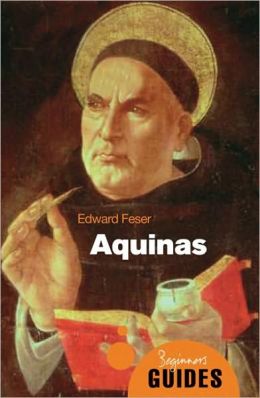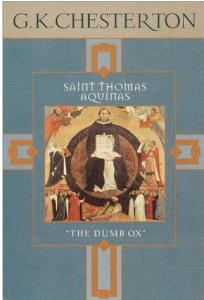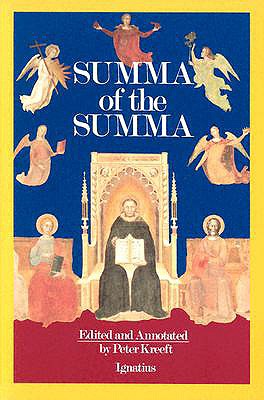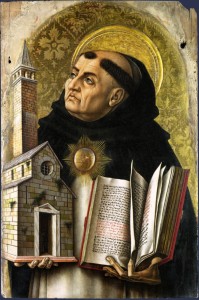
Today marks the feast of St. Thomas Aquinas, perhaps the greatest thinker in Church history. The Dominican prodigy is best known for his two massive “Summas”, the Summa Theologica and the Summa Contra Gentiles, along with a wealth of other writings on Scripture, theology, and philosophy. Pope Benedict XVI recently noted St. Thomas’ influence on the Church:
“It is not surprising that, after St. Augustine, among the writers mentioned in the Catechism of the Catholic Church, St. Thomas is quoted more than any other—some 61 times! He was also called the Doctor Angelicus, perhaps because of his virtues, in particular the loftiness of his thought and purity of life…
“In short, Thomas Aquinas showed there is a natural harmony between Christian faith and reason. And this was the great work of Thomas, who in that moment of encounter between two cultures—that moment in which it seemed that faith should surrender before reason — showed that they go together, that what seemed to be reason incompatible with faith was not reason, and what seemed to be faith was not faith, in so far as it was opposed to true rationality; thus he created a new synthesis, which shaped the culture of the following centuries.”
For a brief introduction to St. Thomas and his work, check out this video by one of his most devoted disciples, Fr. Robert Barron:
If you’d like do go even deeper, here are my favorite four books on St. Thomas:
- Thomas Aquinas: Spiritual Master by Fr. Robert Barron
- Aquinas: A Beginner’s Guide by Dr. Edward Feser
- Saint Thomas Aquinas: The Dumb Ox by G.K. Chesterton
- A Summa of the Summa by Peter Kreeft
 |
 |
 |
 |
Thanks to Kevin Knight at New Advent, who has digitized St. Thomas’ entire Summa Theologica, below you’ll find an excerpt from the First Part which outlines St. Thomas’ famous five proofs for the existence of God.
It should be noted that these aren’t proofs for God in the mathematical or scientific sense. Instead these are arguments appealing to the logical evidence for God. Also, St. Thomas uses philosophical terms like cause, necessity, and existence which for him carry very precise technical meanings which are often different than how we use those words today. Thankfully, Kevin has linked many of these terms to their entries in the Catholic Encyclopedia so if you come across one you’re unfamiliar with, click on the link to understand it better.
As per his usual style, St. Thomas begins with objections to his position. In this case, the two objections are the existence of evil and Occam’s Razor. Next he appeals to an authority who disagrees with the objections (often the Bible, Aristotle, or St. Augustine), then he explores a possible answer, and then finally he refutes the original objections. The selection below will not only answer the question, “can we know God exists?”, but will also give you a taste of St. Thomas’ characteristic style.
Article 3. Whether God exists?
Objection 1. It seems that God does not exist; because if one of two contraries be infinite, the other would be altogether destroyed. But the word “God” means that He is infinite goodness. If, therefore, God existed, there would be no evil discoverable; but there is evil in the world. Therefore God does not exist.
Objection 2. Further, it is superfluous to suppose that what can be accounted for by a few principles has been produced by many. But it seems that everything we see in the world can be accounted for by other principles, supposing God did not exist. For all natural things can be reduced to one principle which is nature; and all voluntary things can be reduced to one principle which is human reason, or will. Therefore there is no need to suppose God’s existence.
On the contrary, It is said in the person of God: “I am Who am.” (Exodus 3:14)
I answer that, The existence of God can be proved in five ways.
The first and more manifest way is the argument from motion. It is certain, and evident to our senses, that in the world some things are in motion. Now whatever is in motion is put in motion by another, for nothing can be in motion except it is in potentiality to that towards which it is in motion; whereas a thing moves inasmuch as it is in act. For motion is nothing else than the reduction of something from potentiality to actuality. But nothing can be reduced from potentiality to actuality, except by something in a state of actuality. Thus that which is actually hot, as fire, makes wood, which is potentially hot, to be actually hot, and thereby moves and changes it. Now it is not possible that the same thing should be at once in actuality and potentiality in the same respect, but only in different respects. For what is actually hot cannot simultaneously be potentially hot; but it is simultaneously potentially cold. It is therefore impossible that in the same respect and in the same way a thing should be both mover and moved, i.e. that it should move itself. Therefore, whatever is in motion must be put in motion by another. If that by which it is put in motion be itself put in motion, then this also must needs be put in motion by another, and that by another again. But this cannot go on to infinity, because then there would be no first mover, and, consequently, no other mover; seeing that subsequent movers move only inasmuch as they are put in motion by the first mover; as the staff moves only because it is put in motion by the hand. Therefore it is necessary to arrive at a first mover, put in motion by no other; and this everyone understands to be God.
 The second way is from the nature of the efficient cause. In the world of sense we find there is an order of efficient causes. There is no case known (neither is it, indeed, possible) in which a thing is found to be the efficient cause of itself; for so it would be prior to itself, which is impossible. Now in efficient causes it is not possible to go on to infinity, because in all efficient causes following in order, the first is the cause of the intermediate cause, and the intermediate is the cause of the ultimate cause, whether the intermediate cause be several, or only one. Now to take away the cause is to take away the effect. Therefore, if there be no first cause among efficient causes, there will be no ultimate, nor any intermediate cause. But if in efficient causes it is possible to go on to infinity, there will be no first efficient cause, neither will there be an ultimate effect, nor any intermediate efficient causes; all of which is plainly false. Therefore it is necessary to admit a first efficient cause, to which everyone gives the name of God.
The second way is from the nature of the efficient cause. In the world of sense we find there is an order of efficient causes. There is no case known (neither is it, indeed, possible) in which a thing is found to be the efficient cause of itself; for so it would be prior to itself, which is impossible. Now in efficient causes it is not possible to go on to infinity, because in all efficient causes following in order, the first is the cause of the intermediate cause, and the intermediate is the cause of the ultimate cause, whether the intermediate cause be several, or only one. Now to take away the cause is to take away the effect. Therefore, if there be no first cause among efficient causes, there will be no ultimate, nor any intermediate cause. But if in efficient causes it is possible to go on to infinity, there will be no first efficient cause, neither will there be an ultimate effect, nor any intermediate efficient causes; all of which is plainly false. Therefore it is necessary to admit a first efficient cause, to which everyone gives the name of God.
The third way is taken from possibility and necessity, and runs thus. We find in nature things that are possible to be and not to be, since they are found to be generated, and to corrupt, and consequently, they are possible to be and not to be. But it is impossible for these always to exist, for that which is possible not to be at some time is not. Therefore, if everything is possible not to be, then at one time there could have been nothing in existence. Now if this were true, even now there would be nothing in existence, because that which does not exist only begins to exist by something already existing. Therefore, if at one time nothing was in existence, it would have been impossible for anything to have begun to exist; and thus even now nothing would be in existence — which is absurd. Therefore, not all beings are merely possible, but there must exist something the existence of which is necessary. But every necessary thing either has its necessity caused by another, or not. Now it is impossible to go on to infinity in necessary things which have their necessity caused by another, as has been already proved in regard to efficient causes. Therefore we cannot but postulate the existence of some being having of itself its own necessity, and not receiving it from another, but rather causing in others their necessity. This all men speak of asGod.
The fourth way is taken from the gradation to be found in things. Among beings there are some more and some less good, true, noble and the like. But “more” and “less” are predicated of different things, according as they resemble in their different ways something which is the maximum, as a thing is said to be hotter according as it more nearly resembles that which is hottest; so that there is something which is truest, something best, something noblest and, consequently, something which is uttermost being; for those things that are greatest in truth are greatest in being, as it is written in Metaph. ii. Now the maximum in any genus is the cause of all in that genus; as fire, which is the maximum heat, is the cause of all hot things. Therefore there must also be something which is to all beings the cause of their being, goodness, and every other perfection; and this we call God.
The fifth way is taken from the governance of the world. We see that things which lack intelligence, such as natural bodies, act for an end, and this is evident from their acting always, or nearly always, in the same way, so as to obtain the best result. Hence it is plain that not fortuitously, but designedly, do they achieve their end. Now whatever lacks intelligence cannot move towards an end, unless it be directed by some being endowed with knowledge and intelligence; as the arrow is shot to its mark by the archer. Therefore some intelligent being exists by whom all natural things are directed to their end; and this being we call God.
Reply to Objection 1. As Augustine says (Enchiridion xi): “Since God is the highest good, He would not allow any evil to exist in His works, unless His omnipotence and goodness were such as to bring good even out of evil.” This is part of the infinite goodness of God, that He should allow evil to exist, and out of it produce good.
Reply to Objection 2. Since nature works for a determinate end under the direction of a higher agent, whatever is done by nature must needs be traced back to God, as to its first cause. So also whatever is done voluntarily must also be traced back to some higher cause other than human reason or will, since these can change or fail; for all things that are changeable and capable of defect must be traced back to an immovable and self-necessary first principle, as was shown in the body of the Article.
What do think of St. Thomas’ arguments?
